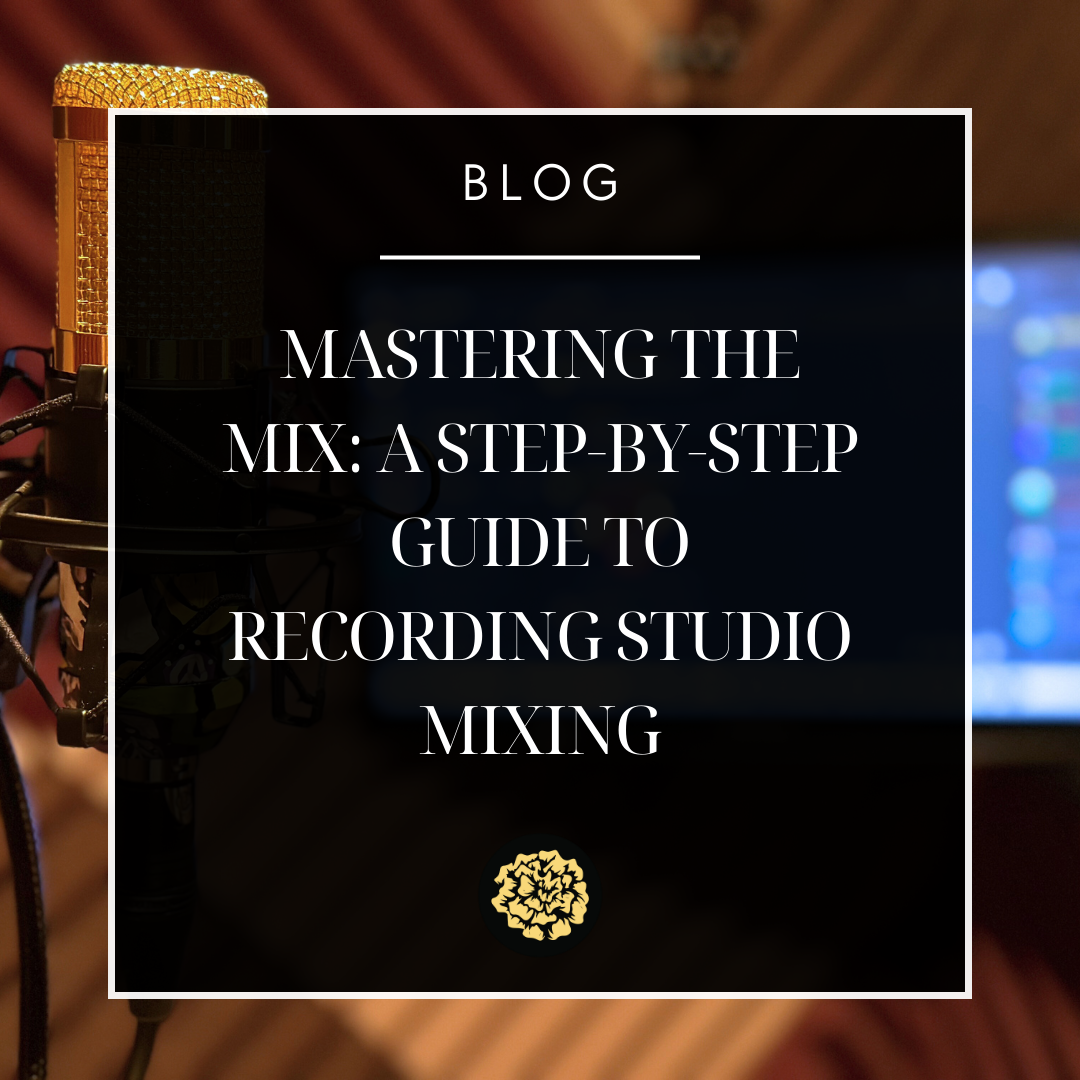Mastering the Mix: A Step-by-Step Guide to Recording Studio Mixing
If you're an aspiring musician, music artist, or even a music producer, then attempting to record and mix your own audio from home can seem like a daunting task. But, with the right techniques and knowledge of the recording studio mixing process, you can achieve professional-sounding recordings quickly! Going through the entire process including tracking audio inputs, managing plugins, and incorporating all sorts of various digital effects to enhance your song requires an in-depth understanding. Read on as we explore these processes further so that your next original track comes out polished and ready for Spotify streaming!
Song Mixing:
Song mixing includes blending and combining audio tracks, balancing levels, adjusting dynamics, using effects, and more.
Pre-Production:
The very thing that is essential to have a well-structured project with a good arrangement. So, the better you prepare and organize things, we can mix the song well. It is the first step to creating a perfect mix. It also helps us to define the style and sound of the song. Also, gather all of the audio tracks needed for the mix. It could include the stems of individual instruments, drums, vocals, and more.
Balance Levels:
Balancing the levels of each track is the next vital step to creating a clean and pristine song. This step can make all the difference in a song; it determines whether or not it will sound professional. It involves finely tuning the gain, panning, and volume of each track until everything is just right. Once complete, you can be sure that your song is as clean and polished as it possibly can be!
Adjust Dynamics:
When working on a track, finely-tuned dynamics are key for creating the desired outcome. Utilizing compressors, limiters, and other dynamic processors can help you achieve consistency in volume across the elements of your track. This ensures that one instrument or vocal part is never too loud when compared to the others. Taking this measure brings cohesion that drastically enhances the quality of the mix. Because consistency is king when it comes to the dynamics of music production, it's worth investing time and effort into properly adjusting each track.
EQ:
The equalizer is an essential precision instrument that allows us to fine-tune each individual aspect of the mix. For example, it allows you to boost or reduce specific frequencies which can be crucial for creating a great-sounding mix. Allowing us to achieve extremely balanced mixes for the desired sound aesthetic, the equalizer provides us with an additional level of control over our mixes. This precision makes all the difference in achieving the perfect harmonic blend for every song.
Add Effects:
Effects are an essential part of crafting a unique sound and space for your mix. Reverb, delay, filters and distortion give the music a space-like quality that can stand out from the competition. Whether it's ambient echoes, airy overtones, or a thick wall of fuzz, these effects have the power to completely transform your mix and make it something special. The creative use of space through effects is the key to pushing boundaries and finding that unique sound you're looking for!
Automation:
Automation offers much more than simple manual adjustments; it can completely transform a mix. By allowing engineers and producers to precisely control volume, panning, and other parameters over time, automation breathes life into recordings that might have otherwise sounded static or dull. It's an indispensable tool for sculpting dynamic mixes full of energy and emotion that truly resonate with listeners. Embrace your inner mad scientist and put automation to work; you'll be glad you did!
Why is Song Mixing Vital?
Song mixing plays a crucial role in music production because it allows the engineer to create a well-balanced track.
Mixing also allows the engineer to combine different elements of the song to make it more dynamic, such as adding reverb, delay, and other effects. The result is a final version of the song that feels professional and polished. It can also help to make the song more radio-friendly and increase its potential for success.
If you aspire to produce a top-notch track, paying attention to the significance of song mixing is imperative. The role of a mixing engineer is crucial as they are responsible for ensuring that all elements are in harmony and produce a cohesive and excellent-sounding final product.
Without proper mixing, a track could sound cluttered, with elements competing for attention and making the song sound unprofessional. Mixing is also essential for creating a desired atmosphere and mood. For example, a dance track should have a different mix than a ballad, as the two genres require different dynamics. A skilled mixing engineer can adjust each element's levels to achieve the desired sound.


